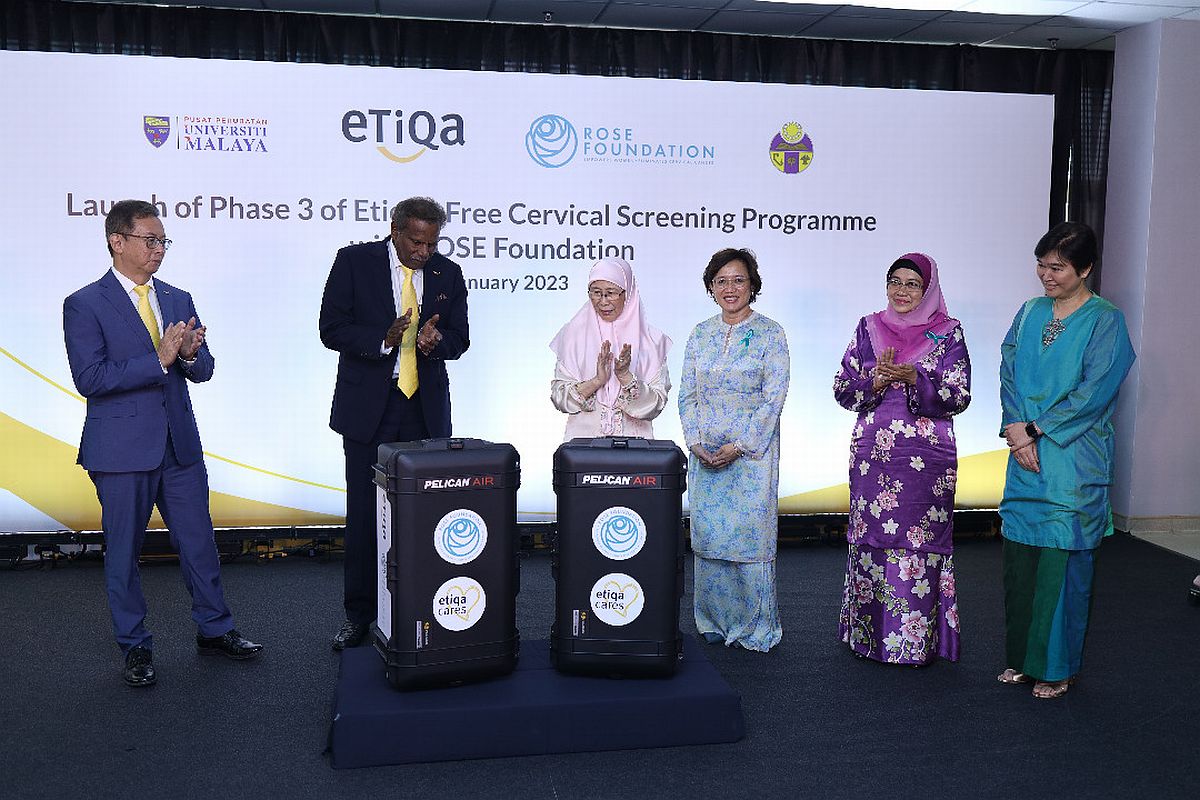PETALING JAYA, Jan 11 – Any catch-up programme by the Ministry of Health (MOH) to cover girls who missed their shots of the human papillomavirus (HPV) vaccine will need collaboration and partnerships with other ministries.
Prof Dr Woo Yin Ling, medical technical advisor and trustee of ROSE Foundation and a professor at University of Malaya’s Department of Obstetrics and Gynaecology, said previous collaborative efforts between the MOH and the Ministry of Women, Family and Community Development’s National Population and Family Development Board Malaysia (NPFDB) in implementing a catch-up programme for HPV vaccination have been successful.
“In the past, and I don’t know whether it will come to fruition [this year], but we can use different ministries. For example, in 2010 or 2012, 2014, LPPKN (NPFBD) was involved in the catch-up programme for HPV vaccination.
“So I think through various collaborative efforts, we can certainly catch up and ensure that more girls and teenagers are vaccinated,” Dr Woo said in response to questions put forth by CodeBlue during the question-and-answer session at the third phase launch of Etiqa’s Free Cervical Screening Programme with ROSE Foundation yesterday.
According to Selangorkini, such a programme was carried out by the NPFDB in March 2018, where it aimed to vaccinate 27,000 women from the ages of 22 to 27 under the HPV vaccination programme.
“The other good story for HPV vaccination is that two doses are no longer required. Children only need one dose of HPV vaccine. So can you imagine how achievable cervical cancer elimination is?
“One dose of vaccine, two HPV screening among the 35 to 45-year-olds. So achievable, right? One vaccine dose for 13-year-olds. Two screening tests at the age of 35 and 45, and we are sorted. Of course, we have to treat them,” said Dr Woo.
On January 6, the MOH announced the procurement of 100,000 doses of the HPV vaccine that are ready to be distributed to Form One girls. However, it is unclear if the newly procured HPV vaccines will be used as part of a catch-up programme for the lost pandemic years or for a new cohort.
In September last year, former Health Minister Khairy Jamaluddin acknowledged a sharp drop in inoculation rates under the national HPV vaccination programme in 2021. Citing MOH data for that year, Khairy said only 34,944 of Form One girls (12.7 per cent) received their first dose, including 31,708 (6.4 per cent) who received two doses of the HPV vaccine.
He did not provide HPV inoculation rates for 2022 but said that the MOH was committed to a catch-up programme to cover girls who missed their shots of the HPV vaccine.
The National Cancer Society of Malaysia (NCSM), however, estimated over 560,000 teenage girls missed their HPV jabs from 2020 to 2022 due to school closures during the pandemic and the diversion of funding to Covid programmes.
“I think the MOH has announced recently that they have managed to secure a hundred thousand doses of vaccines. They’re in the process of securing more doses so that they can have a catch-up programme.
“My understanding from what I’ve read is that we have the 500,000 girls that have missed, and so in different cohorts, we will have a catch-up programme. In the past, before Covid, girls of 13 years old were given the vaccine in schools. So it will perhaps include more cohorts of that in the coming years.
“Bearing in mind that there’s also a shortage of these vaccines globally. And so we have, as an international community, focused a lot of funds and energy on Covid, so many other countries are also catching up with preventative measures such as this,” said Dr Woo.
Prof Dr Adeeba Kamarulzaman, who is chair of the ROSE Foundation and the Dean of the Faculty of Medicine at Universiti Malaya, said the government needs to procure more HPV vaccine doses and implement a catch-up programme for the missed cohort.
“Unfortunately, we missed a target during Covid, that’s understandable. So we really need to catch up and also ensure that as many girls – and eventually boys as well – should be vaccinated,” Dr Adeeba told CodeBlue briefly after the launch.
According to Dr Woo, studies done by Universiti Malaya have shown that the Malaysian HPV vaccination programme demonstrated a 90 per cent reduction in HPV types 16 and 18.
“I’m going to share with you data that is fresh off the oven – Malaysian data. Our vaccination programme started in 2010, and recently, our studies here done in UM with our group have shown that over this 10-year period, we have demonstrated a 90 per cent reduction in HPV 16 and 18, which are the main causes of cervical cancer.
“So the investment that our government has made, for the HPV vaccine has yielded results, in that today, if we go to those who have benefited from the vaccines, you will see a 90 per cent reduction in cancer-causing HPV.
“That is a great success story and we are the first country in Southeast Asia to have demonstrated that,” said Dr Woo.








